Related searches
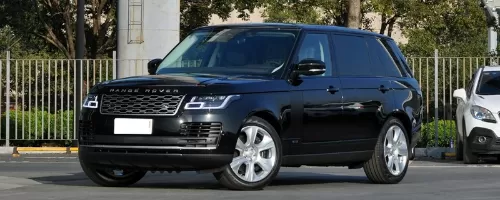
Tax Breaks as Silent Salesmen
Automotive policies often nudge consumers toward “green” choices through financial sweeteners. Electric vehicle (EV) tax credits, for instance, aren't just about saving the planet—they're designed to offset higher upfront costs. Buy an eligible EV, and the government effectively hands you a discount at tax time. This isn't charity; it's a calculated play to accelerate the EV transition while making voters feel rewarded.
But the benefits extend beyond EVs. Some states offer breaks for hybrids, plug-in conversions, or even carpool lane access. These automotive policies act like traffic lights, steering buyers toward specific models while making alternatives feel financially reckless.
Penalties You Didn't See Coming
For every tax break, there's often a hidden penalty. Take gas-guzzler taxes: Owning a high-emission vehicle can trigger annual fees that sting harder than a speeding ticket. Older cars face their own traps. Failing to meet updated emissions standards? Prepare for inspection fines or even registration blocks in strict states.
Automotive policies also penalize through omission. Let a tax credit expire (like the phaseout for certain EVs), and suddenly your dream car costs thousands more. It's a reminder that policy giveth, and policy taketh away—often without fanfare.
The Ripple Effect on Used Cars
Automotive policies don't just target new-car buyers. Stricter emissions rules push up maintenance costs for older vehicles, forcing owners to choose between costly repairs or selling at a loss. Meanwhile, EV tax credits indirectly depress used gas-car values, as buyers flock to subsidized alternatives.
This creates a two-tier market: Policy-favored vehicles hold value; others become financial anchors. Your clunker isn't just aging—it's being priced out of relevance.
The Hidden Costs of “Free” Infrastructure
Public charging stations and HOV lanes feel like perks, but they're funded by automotive policies that redistribute costs. Gas taxes, once the backbone of road funding, are declining as EVs rise. To compensate, many states now slap EVs with annual fees ($100–$200) to offset their “free ride.”
Even non-drivers pay. Subsidies for automakers and charging networks come from taxpayer pools, meaning your wallet funds infrastructure you might never use.
The Insurance Squeeze
Automotive policies influence insurance markets. Mandates for advanced safety tech (like automatic braking) lower accident risks but raise repair costs. A cracked sensor in a “smart” bumper can cost quadruple a traditional fix—a bill passed to you via premiums.
Similarly, EV battery replacements (rare but catastrophic) are shaping coverage terms. Policies designed to boost innovation often leave consumers footing the risk.
What's Next for Your Wallet?
Automotive policies are rapidly adapting to new challenges:
Battery Sourcing Rules: The IRA’s emphasis on North American battery production could limit eligibility for tax credits, affecting the price of imported EVs.
Charging Infrastructure Funding: Federal grants are expanding EV charging networks, making long-distance travel cheaper and more convenient.
Emissions Trading Programs: States like California are capping greenhouse gas emissions, which could lead to higher energy prices but cleaner air.
Staying informed about these trends can help you make smarter financial decisions.
Conclusion
Automotive policies are economic weather systems. Sunny tax breaks and stormy penalties coexist, reshaping what we drive and how much we pay. The key is to stop seeing cars as just vehicles and start seeing them as policy-bound assets.
Your next ride isn't just a car. It's a tax return on wheels—or a penalty magnet. Choose wisely, because in this game, the House (and Congress) always wins.
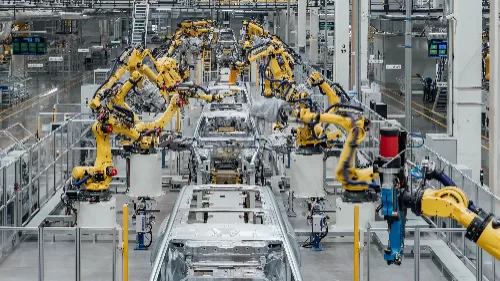 The Future of Car Factories: Smaller, Faster, and Closer to You
The Future of Car Factories: Smaller, Faster, and Closer to You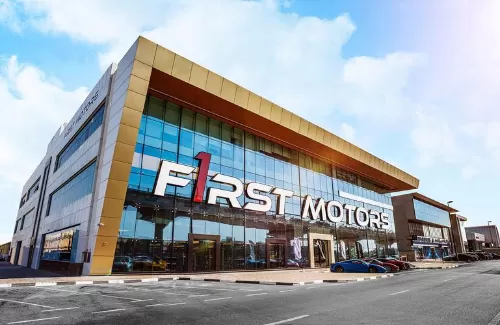 Monthly Car Subscriptions: Affordable Freedom or Hidden Costs
Monthly Car Subscriptions: Affordable Freedom or Hidden Costs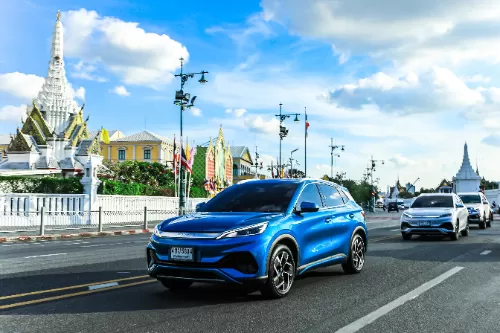 The New Energy Vehicles Your Neighbors Are Buying
The New Energy Vehicles Your Neighbors Are Buying How Lightweight Materials Are Making Cars Safer, Cheaper, and Greener
How Lightweight Materials Are Making Cars Safer, Cheaper, and Greener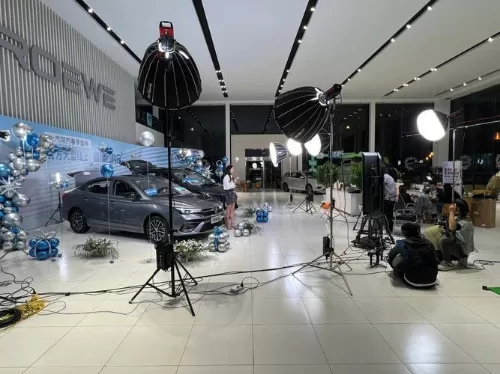 No More Pushy Salesmen: How Live Commerce Makes Car Buying Transparent
No More Pushy Salesmen: How Live Commerce Makes Car Buying Transparent


